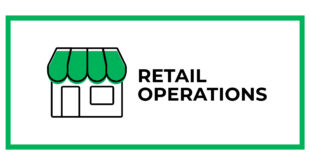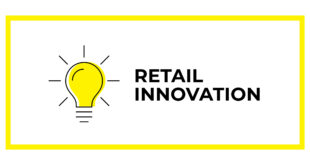Gregg Gregory is a professional speaker and trainer, and as founder of TeamsRock, has helped businesses of all sizes find and keep top-notch employees. He suggests reviewing your own expectations of a new employee and how you plan to find that person before you even post the first help-wanted ad. Answering these questions up front will help focus your approach as you start the hiring process.
Am I looking for skill or will?
When you hire someone, you’re likely looking for a certain set of skills, but you also need someone who has the attitude you need along with the will to provide excellent customer service. “Hire first for will, then for skill,” Gregory says. Ask yourself, “What’s the minimum level of skill I’m willing to hire?”
Do you need employees to have any certifications or technical skills? Do you want a master plumber, or will an apprentice suffice? “Great organizations figure out what is the minimum skill set they need, and then are willing to teach the rest,” he says. It’s more difficult to teach an employee good people skills, so make that your hiring priority. He says that skills are much easier to learn than attitude.
What’s my company culture?
The people you hire need to be a good fit for the culture of your company. What’s the attitude you foster among your employees? Is it laid back? Is it more intense? Do you offer upward mobility within the company or do employees hire on without any intent of long-term employment? The people you hire should fit in; if they don’t, they’re not likely to be happy and won’t contribute to the progress of the business.
And while you want the new hire to fit in, don’t hire someone who is just like you. “One of the biggest mistakes you can make is hiring someone who is just like you,” Gregory says. “That can cause stagnation. You need some diversity.”
Why have previous employees left?
When good employees leave your company, do you have a good exit interview process to determine why? If you’re hiring the right people and those people are leaving because they feel under-appreciated or under-challenged, then you need to figure out what you can do differently in the future. You may need to offer growth opportunities or find ways to help those employees fit in to the culture of the company.
Have I asked employees for referrals?
Referrals are not just for the sales team anymore; if you have great employees, chances are they know some other great people. Offer employees incentives for referrals of friends they know who might be looking for a job. Conversely, for employees who aren’t doing a great job, beware of the people they may recommend.
Am I prepared for the interview?
Don’t go into the interview unprepared. Have a list of questions to ask so you get a good idea of the true personality of the person. More than likely, you’ve had the experience when the person who shows up on his first day of work is a completely different person from the one you hired. Prevent that by having a thorough interview process.
Ask questions that relate to job skills, but also ask questions that evoke emotions from the person. For example, if you’re going to have the candidate talk to more than one employee, have each employee ask the candidate the same question. Does the candidate get aggravated at being asked the same question multiple times?
Or, you can present scenarios of stressful situations or ones that present the candidate with an ethical dilemma. Don’t just listen to his answers; read his body language and look directly into his eyes to see if it conflicts with what he says.
Finally, as you’re creating your interview questions, know what you legally can and cannot ask. Consult NRHA’s Human Resources Handbook (available on nrha.org) or consult the Equal Employment Opportunity Commission (eeoc.gov).
Am I using pre-employment testing?
Pre-employment tests tests can also help you develop your questions for an interview. Once you’ve narrowed your field of candidates to those you’d like to bring back for a second interview, have those candidates take a pre-employment test. “While there are a variety of tests that measure a candidate’s personality, look for tests that are validated. Validated tests help you measure the traits a person needs to work in a specific industry,” Gregory says.
Once you have reviewed the results of that test, develop questions based around the candidate’s responses to uncover more about the candidate sitting in front of you. Many validated pre-employment tests offer great questions based on the results of the test. You want to develop questions that further explore the candidate’s strengths and weaknesses.
You may also want your current staff to take the test so you can create benchmarks built around your best-performing employees. If the new hire falls far outside the realm of the benchmark standards set by your current employees, he’s not likely to be a good fit.
Do I have a plan for integrating new hires into the company culture?
After you’ve finally made a job offer, start integrating that person into the culture of the company. Even if that person has a high level of skill, don’t give him too much work too soon. Let him learn the way your store operates. Provide a mentor to offer guidance. Have a manager sit down with your new hire to establish long- and short-term goals.
“One of the biggest reasons people decide to leave a company is that they’re not being challenged enough,” Gregory says. As your new hire continues his time with you, watch for signs that he’s becoming bored with the job and needs a new challenge.
About the Author
With more than 1,500 speaking events to his credit, Gregg Gregory is the team-building mastermind America needs today. His client list of over 400 companies and associations exudes experience and assurance that Gregg’s thought-provoking insight is what your organization needs to produce the results you want.
We also ask that you send a copy of your reprint, or a link to it, to gregg@teamsrock.com.
Gregg Gregory, CSP
4505 Clearbrook Lane
Kensington, MD 20895
(301) 564-0908
Copyright © 1996-2012, All Rights Reserved
 Hardware Retailing The Industry's Source for Insights and Information
Hardware Retailing The Industry's Source for Insights and Information








